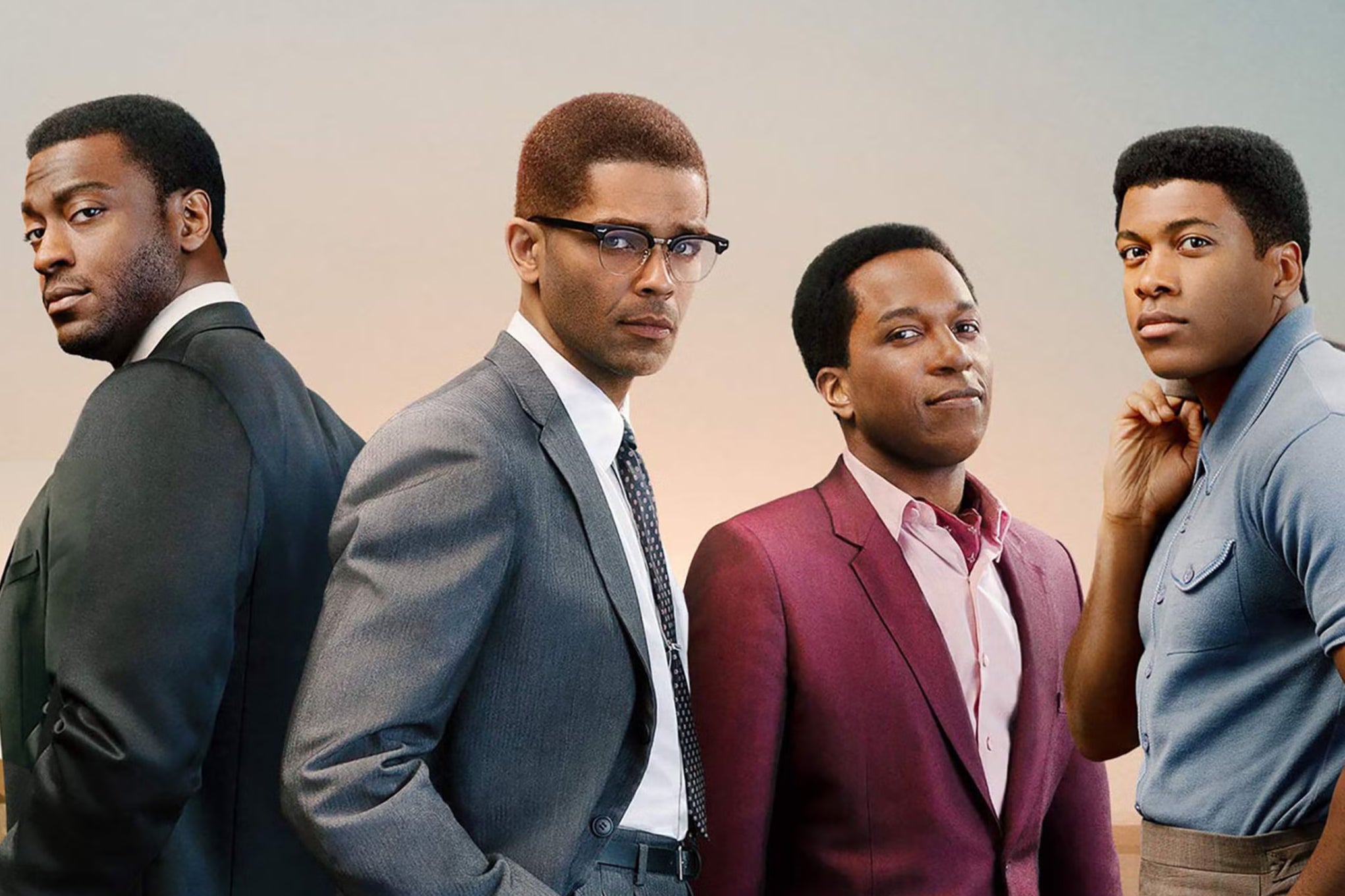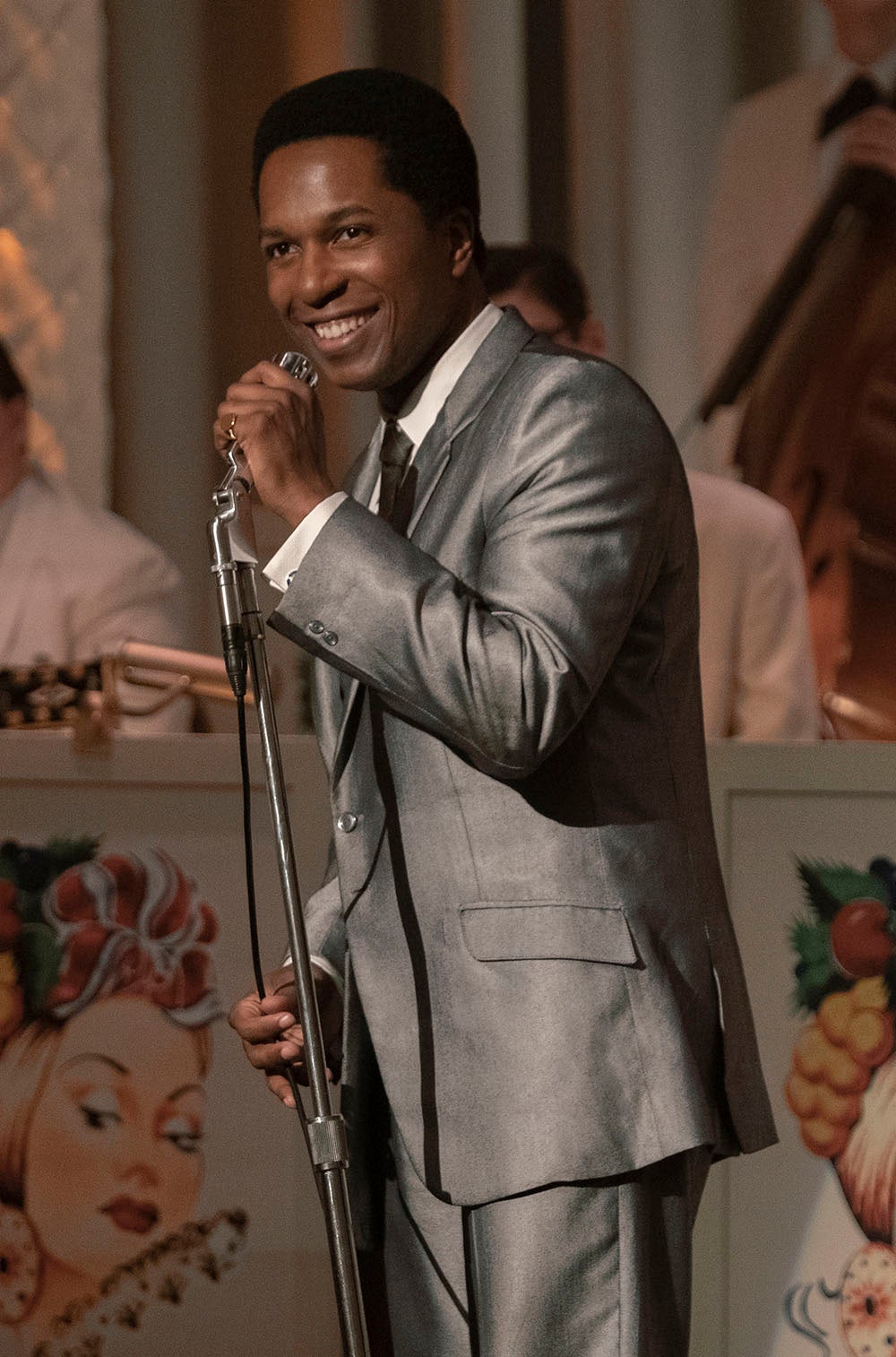‘These men were inspirations for us’: the stars of One Night in Miami on bringing Malcolm X and Muhammad Ali to life
Regina King’s new film imagines what happened when these two icons met with singer Sam Cooke and American footballer Jim Brown – and looks at the men behind the myth. It’s a more vulnerable exploration of fame and race, its four stars tell Adam White


Your support helps us to tell the story
From reproductive rights to climate change to Big Tech, The Independent is on the ground when the story is developing. Whether it's investigating the financials of Elon Musk's pro-Trump PAC or producing our latest documentary, 'The A Word', which shines a light on the American women fighting for reproductive rights, we know how important it is to parse out the facts from the messaging.
At such a critical moment in US history, we need reporters on the ground. Your donation allows us to keep sending journalists to speak to both sides of the story.
The Independent is trusted by Americans across the entire political spectrum. And unlike many other quality news outlets, we choose not to lock Americans out of our reporting and analysis with paywalls. We believe quality journalism should be available to everyone, paid for by those who can afford it.
Your support makes all the difference.Kingsley Ben-Adir’s transformation into Malcolm X in the gripping new film One Night in Miami… didn’t go as smoothly as it appears on screen. “The hair was too bright, and then it was too dark,” he remembers. “And then it was too orange. We explored some prosthetics but they weren’t for me.” The glasses, though? Those sharp, browline frames permanently sketched in our cultural memory of the iconic activist and leader? Once Ben-Adir slipped those on, they didn’t leave his head once. “They stayed on for like two months,” he laughs.
Transformation is central to One Night in Miami…, which dramatises the behind-closed-doors meeting of four Black legends on 25 February 1964, all of whom were in periods of great transition. There was Malcolm, one of the most prominent voices in the fight for Black liberation, who was about to walk out on the increasingly fraught Nation of Islam; the soul singer Sam Cooke, whose superstardom among predominantly white audiences had sparked a backlash among his Black fans; American footballer Jim Brown, who was about to quit the sport to focus on acting; and prize fighter Cassius Clay, who would change his name to Cassius X and then to Muhammad Ali. The friends were all in attendance at that night’s historic fight between Clay and Sonny Liston, and subsequently retired to a single hotel room, where life was pondered and ice cream consumed.
The performances by Ben-Adir, Hamilton’s Leslie Odom Jr, Aldis Hodge and Eli Goree, respectively, are full and multi-faceted renderings of men we know and revere. They’re also deeply human, considering that all four’s stories tend to be flattened as they’ve ascended to cultural myth. We witness Ali’s youthful vulnerability, Cooke’s private unease about his music, and Malcolm’s paranoia and fear for his family’s safety – he would be assassinated less than a year later.
Ben-Adir – who is best known for his TV roles in Peaky Blinders, The OA and High Fidelity, and last year played another Black American icon, Barack Obama, in a Showtime miniseries – says Malcolm was often misunderstood. The British actor quotes the prominent civil rights activist Dick Gregory, who once said his close friend Malcolm was depicted as a “lacerating demagogue” by the media. “It was really a character that Malcolm slipped in and out of,” Ben-Adir explains from his home in London. “He was a sweet and bashful man, and a kind and gentle father. Lots of the videos that we have of Malcolm are him responding to hideous instances of racism, that have just happened usually 24 hours before. So it’s no surprise that he’s always riled up and impassioned. Malcolm in private was very different.”
Kemp Powers’ script for the film, which he has adapted from his own award-winning play, is guided by that clash between the public and the private. Malcolm X, Cooke, Brown and Ali all have their own secret turmoils, which can only be expressed once the rest of the world has been shut away. Powers imagined the conversations the four men had about race, fame and masculinity, but they ring heartbreakingly true.
Guiding it all with sensitivity is director Regina King, the Oscar-winning star of If Beale Street Could Talk and Watchmen, making her feature debut behind the camera. Her four leading men, all speaking from their respective homes via Zoom, light up at the mention of her name and admit to being a little starstruck at times. “She’s given us so many beautiful portraits of Black life in this country,” Odom Jr says of her film roles. “She’s introduced us to so much soul! All these gorgeous Black women that we’ve seen through Regina King.”
King wanted to recreate the sincerity and complexity she’s imbued in her female characters, but through the Black male experience, says Ben-Adir. “Regina’s mission statement coming in was that this movie is a love letter to Black men,” he remembers. “These men are being explored in a very specific way, and it’s so dependent on the vulnerability and the love between them in private, and outside the media [glare].”
With that came intense pressure to get it right. Hodge, speaking from Brooklyn, and Odom Jr, at home in Los Angeles, are still nervous about whether they did justice to their characters (spoiler: they absolutely did). Doubly so for Hodge, with Brown the only icon of the film’s central foursome still alive and kicking. They weren’t able to meet before filming. “I’ve heard that he approves though,” Hodge says, while pretending to mop his brow. “So we’re good! We got past it!”
Odom Jr, meanwhile, grew up listening to Cooke and was very reluctant to play him. “Sam, in many ways, was one of my teachers,” he says, his eyes closed tight in reverence. “He’s also the blueprint for all modern Black singers, and he’s incredibly meaningful to me. Honestly, I thought that Regina was making a really big mistake hiring me. I thought that the shoes would be ill-fitting. But now I’m just grateful that she saw something in me before I saw it in myself.”
All four men were figures in the background of the actors’ early lives. Books about Malcolm lined the bookshelves belonging to Ben-Adir’s parents, while Goree remembers Ali being a part of the cultural lexicon while growing up, just one of the many stories of Black legends passed down the generations. “These men were inspirations for us,” he recalls, from his base in California. “They were spread through the community, by my mother and grandmother, and through my church.”
With his boxer’s build and soft features, Goree is the most visually similar to the man he was cast to play, and seamlessly matches Ali’s rousing bravado. He says that he feels different after playing him. “I’m a very introverted person, and he was such an extrovert,” he explains. “He got energy from other people, and I like to be alone. I’m someone who likes to read my script and study by myself, go out and do my performance, then come back and refocus. But I stayed in character [off camera], and really walked in those shoes, and I’ve carried some of that since. Just his perseverance and his tenacity, and the importance of being bold and willing to speak about what you believe in.”
That tension, of how much you give of yourself as a Black man in the spotlight, fuels much of One Night in Miami.... Throughout the film, Malcolm accuses Cooke of abandoning the Black audiences that propelled him to fame and failing to use his platform to uplift his community. Cooke argues that his presence in white venues, performing fairly apolitical music, is enough to bridge a racial divide. The film leaves the matter lingering. All four actors have personally grappled with the same conflicts as they’ve risen to fame.
“I believe that if you are lifted up in that way, you owe something to the people that helped get you there,” Odom Jr says. “I’m sure you can rise all by yourself in some industries, but my industry is not one of those. In my case, a community of people raised me and pointed me in the right direction and made sure that I stayed on the right path – teachers, mentors, a loving household. So I think about, you know, who do I owe a debt to? And thanks in great part to the Black Lives Matter movement and the work that they’ve been doing over the last few years, we’re able to tell the truth about our experience now. I have a responsibility to be more honest about it, and telling the truth about it is the first step.”

The weight of responsibility extends further, too. In one scene in the film, Malcolm chastises Brown for portraying “sacrificial negros” in films and urges him to aim higher. Hodge says that he empathised with the challenges Brown faced in the acting world. “You have to know your value,” he explains. “What’s most important is what you say no to, because saying yes to certain things could actually set you back 10 years. Saying no to the right things can put you in a [better] position and help you build out your legacy. Every job is a calculated decision, and along your road there are going to be so many people that are going to challenge you, and try to convince you that you’re making the wrong choices. So sit in your truth. When you put something out, it is out there forever. So you better be proud of it.”
He and his co-stars are incredibly proud of One Night in Miami…, even if Odom Jr expresses some nerves about it finally being out in the world. He says he’ll only be able to relax once he knows audiences have embraced it. “Hamilton was a similar experience,” he recalls. “There was no popping of champagne bottles before we knew what people were going to think.” It echoes the mood on set, with the actors in their own quiet bubbles, staying largely in character. “I feel such kinship with these brothers, because we all had a similar way of working,” Odom Jr continues. “You approach this work with the seriousness and the gravity that it deserves, and the fun only comes after you get the job done.”
“We’re a weird lot!” he adds. “You take a very silly profession very seriously for six or seven weeks and then you can go back to being silly again.”
One Night in Miami… is released on Friday 15 January on Amazon Prime

Join our commenting forum
Join thought-provoking conversations, follow other Independent readers and see their replies
Comments